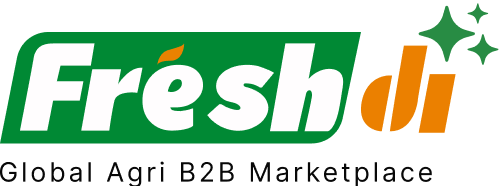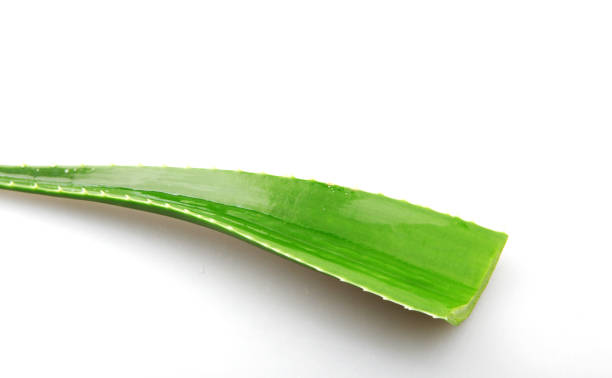Introduction – Current State of Play: The Aloe Vera Sector in Philippines
If you’re in the Aloe Vera business and looking at the Philippines, 2025 is a year you can’t ignore. The country’s Aloe Vera market is heating up rapidly, and it’s not just about hot weather — we’re talking policy shifts, booming demand, and a new wave of health-conscious consumers driving local and export markets.
Global supply chain disruptions, climate unpredictability, and changing trade regulations have made it vital for businesses to rethink their sourcing strategies. At the same time, there’s a clear opportunity: with the Philippines’ ideal growing conditions and a projected market leap from USD 4.01 million in 2024 to USD 8.61 million by 2033, the time to act is now.
Let’s break down what this means for you — and more importantly, who you should be partnering with in this fast-moving space.
Deep Dive – Market Movers: Recent Developments and Consequences
In the last 12 months, the Aloe Vera industry in the Philippines has experienced several key changes:
-
Surge in Demand: Driven by the global pivot toward natural remedies and organic skincare, Aloe Vera-based products are flying off shelves.
-
Export Expansion: Filipino growers and processors are seeing increased interest from buyers in the US, Europe, and East Asia, thanks to favorable trade agreements and the country’s tropical climate.
-
Investment in Processing Tech: Local businesses are upgrading to more advanced extraction and purification systems, boosting product quality and shelf-life.
-
Climate Challenges: Typhoons and unpredictable rainfall have affected crop yields in some regions, pushing buyers to source from multiple regions or invest in climate-resilient agriculture.
In short, the market is growing — but so are the stakes. Businesses need to be nimble, informed, and well-connected.
Top 9 Verified Aloe Vera Suppliers in Philippines – Navigating Current Market Realities
Here are the top 9 Aloe Vera suppliers in the Philippines for 2025, verified based on export performance, certifications, buyer reviews, and global reach via the Freshdi platform:
-
Angelo Austria
Known for high-purity Aloe Vera gel and consistent export quality. Recommended for buyers seeking cosmetic-grade material. -
Casa Soleado
Offers organically grown Aloe Vera and is deeply engaged in sustainable farming practices. Great for eco-conscious brands. -
Allan Abe Cinco
Specializes in Aloe Vera juice and beverage-ready extracts. A strong choice for food and beverage manufacturers. -
Up Los Banos
An academic-backed supplier tied with agricultural research — ideal for buyers needing traceable, scientifically supported products. -
Jess
Offers versatile Aloe Vera raw materials including leaves, gel, and powder. Known for fast turnaround and flexible MOQ. -
The Farm
Integrated farm-to-product supplier with full traceability and organic certification. Ideal for wellness and nutraceutical products. -
Princejoypaul
Focuses on Aloe Vera oil and cosmetic formulations. Strong partner for private-label skincare brands. -
Jjn Beauty And Wellness Manufacturing
A full-service manufacturer offering Aloe Vera-based cosmetic and wellness products. Turnkey solutions for B2B buyers. -
Happy Thumb Garden
Small-batch supplier committed to organic and heirloom Aloe cultivars. Best for boutique brands and specialty retailers.
Dynamic Ranking Note: Rankings on platforms like Freshdi are dynamic and update regularly based on real-time RFQ activities, buyer feedback, and supplier responsiveness. Keep an eye out for “Supplier of the Month” badges to spot rising stars.
Market Navigation – Strategic Responses to The Current Aloe Vera Landscape in Philippines
With the Aloe Vera market set to double in the next decade, here’s how you can maneuver through the 2025 terrain.
Immediate Opportunities
-
Health and Wellness Boom
Aloe Vera’s natural healing and moisturizing properties are in high demand. Skincare, hair care, and nutraceuticals are the fastest-growing product categories. -
Functional Beverages
Aloe Vera-infused drinks are trending, especially in urban centers. With digestive and detox benefits, they’re becoming go-to products for health-conscious consumers. -
Export Momentum
The Philippines has a geographical advantage. With increasing demand in South Korea, Japan, and the Middle East, exporters are scaling fast.
Challenges You Need to Watch Out For
-
Quality Assurance Hurdles
Buyers are demanding uniformity. Variations in gel purity or processing methods can lead to product rejections or poor reviews. -
Fragile Supply Chains
Aloe Vera deteriorates rapidly after harvest. Without cold chain logistics or prompt processing, losses can pile up quickly. -
Regulatory Tightening
International buyers are requesting lab tests, organic certifications, and traceability. Meeting these standards takes investment and planning.
Winning Sourcing Strategies
-
Go Local, Grow Local
Investing in local farming partnerships can provide a more stable supply and better control over quality. -
Sustainability Sells
Eco-conscious consumers are willing to pay a premium for responsibly sourced Aloe Vera. Suppliers who use water-efficient farming methods or recyclable packaging are gaining traction. -
Diversify Your Supplier Base
Don’t put all your eggs in one basket. Work with multiple verified suppliers to ensure continuity, especially during harvest downtimes or natural disruptions.
Conclusion – Key Takeaways for Businesses in a Rapidly Evolving Market
The Aloe Vera market in the Philippines is not just growing — it’s evolving. With a projected CAGR of nearly 8% through 2033, it’s clear that Aloe Vera is here to stay as a staple in health, wellness, and cosmetic sectors.
But growth brings complexity. Between shifting regulations, supply chain vulnerabilities, and quality expectations, businesses need to stay sharp.
Checklist for Aloe Vera Buyers in 2025
- ✅ Shortlist certified suppliers with strong export records
- ✅ Monitor RFQ trends and market alerts on Freshdi
- ✅ Prioritize suppliers with eco-friendly or organic practices
- ✅ Diversify sourcing to protect against regional disruptions
- ✅ Invest in supplier relationships for better traceability and transparency
How Freshdi Empowers Buyers
Platforms like Freshdi are game-changers in today’s unpredictable market. With real-time supplier verification, RFQ insights linked to breaking news, and supplier performance tracking, Freshdi arms buyers with the intelligence they need to make confident, fast decisions.
In a market moving this quickly, staying informed isn’t optional — it’s essential. Freshdi helps you keep your finger on the pulse.
FAQs
1. What is the current size of the Aloe Vera market in the Philippines?
As of 2024, the market is valued at USD 4.01 million and is expected to grow to USD 8.61 million by 2033.
2. Which Aloe Vera suppliers in the Philippines are verified for export?
Top verified suppliers include Angelo Austria, Casa Soleado, and Jjn Beauty And Wellness Manufacturing.
3. What are the most in-demand Aloe Vera products in 2025?
Skincare gels, Aloe Vera juice, cosmetic-grade extracts, and nutraceutical formulations are leading the market.
4. How can buyers ensure Aloe Vera product quality?
Work with suppliers who offer testing documentation, organic certification, and product traceability. Platforms like Freshdi help filter such verified suppliers.
5. Why should I source Aloe Vera from the Philippines instead of other countries?
The Philippines offers a warm climate ideal for Aloe Vera cultivation, competitive pricing, and an increasingly skilled supplier base with export-ready capabilities — making it a strong choice for global buyers.
Stay ahead, stay informed – and let Freshdi be your sourcing compass in the dynamic world of Aloe Vera.


